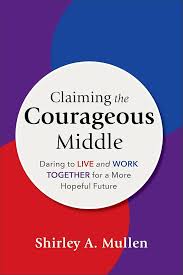Should we learn from the past or cancel the past? We have more options than those two. But in general, it is better to learn from the past than ignore it.
Take for example two people on opposite sides of the Civil War. As has been pointed out, even though Lincoln emancipated the slaves and prosecuted the Civil War which ended slavery in the country, he was probably not pure in his views about the races. He thought they should be politically equal but was much more uncertain about whether they should be socially equal to whites.

Does that mean Lincoln was a reprobate we should completely denounce? No. It means he was a flawed hero.
Then take Stonewall Jackson. He was a stalwart defender of the South and slavery while he was also a very devoted Christian. In contrast to Lincoln whose Christian credentials were ambivalent at best, Jackson read and believed his Bible devoutly.
Does that mean we should uniformly valorize Jackson? No. He was a man who embodied deep contradictions.
What can we learn from this? We can learn that people are complex. We are each a mixture of motives, of good ideas and good practices and many that are less than ideal. By learning the stories of imperfect heroes and of villains with virtues, we learn about ourselves.
No matter how pure and right, we think our ideas and motives are, they probably aren’t. We should approach ourselves and life with humility.
It means that we may be wrong. Any who have ever changed their minds about anything are admitting they were once wrong—and so could also be wrong now. History, even our own history, teaches us that we should nurture the attitude that we have something to learn from everyone.
Image by Mark Thomas from Pixabay.



 Humanity, male and female, is created in God’s image. This is emphasized by repeating it in three slightly different ways. Together we bear God’s image. And what does it mean to do that? The answer is in the very next verse:
Humanity, male and female, is created in God’s image. This is emphasized by repeating it in three slightly different ways. Together we bear God’s image. And what does it mean to do that? The answer is in the very next verse: